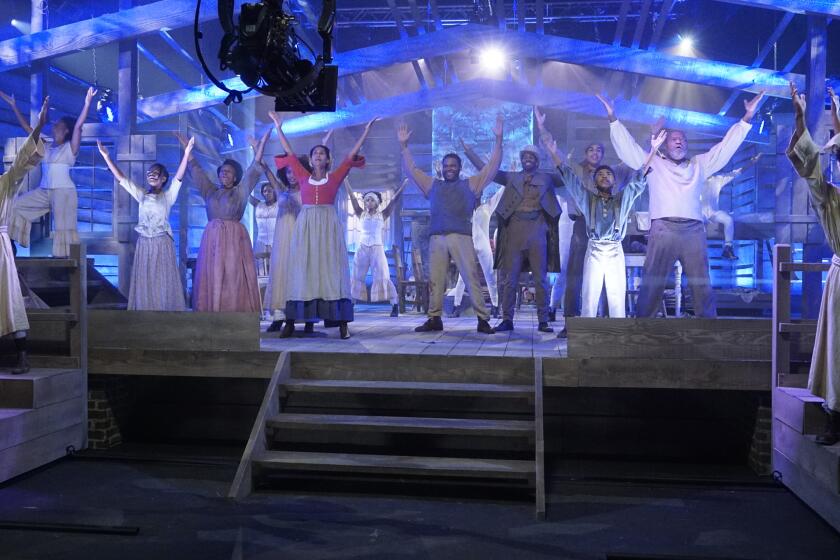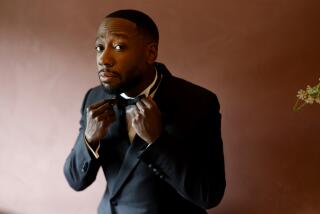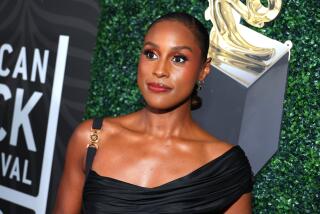- Share via
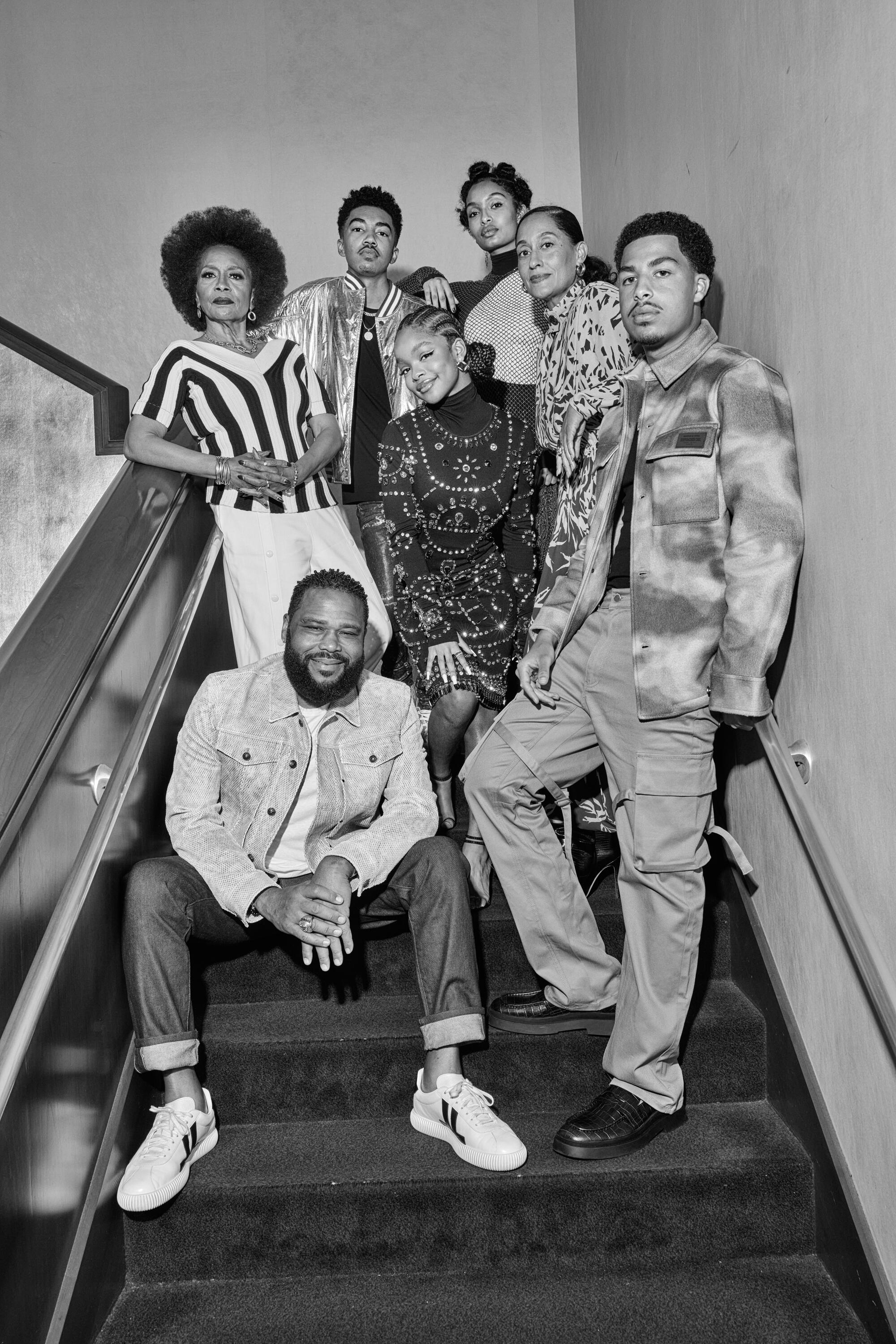
The tour van cruising through the neighborhood of fancy homes and palm trees slowed as it approached a Black family standing in front of their home.
“If you look to your left, you’ll see the mythical and majestic Black family out of their natural habitat and yet still thriving,” the guide said gleefully as the white tourists gripped their cameras. “Go ahead and wave. They’ll wave right back.”
That scene, from the opening episode of ABC’s ‘black-ish,” was an introduction to the Johnsons, a multigenerational family living a different kind of American dream. Headed by successful advertising executive Andre “Dre” Johnson (Anthony Anderson) and his physician wife, Rainbow “Bo” Johnson (Tracee Ellis Ross), the Johnsons tried fiercely to hang on to their cultural identity while living and working in an largely white environment that did not always understand them.
Premiering in 2014 to positive reviews and solid ratings, “black-ish” not only survived but thrived over the next eight seasons. It shattered barriers while upending previous prime-time portrayals of families of color. With a thrust that was frequently revelatory but never harsh or preachy, “black-ish” succeeded as a situation comedy about a loving family and as a sharp look at how successful Black people still need to push back against stereotypes and false perceptions.
Before Tuesday’s series finale, we asked “black-ish” creator Kenya Barris and cast members which episodes stuck with them. Here are the top 10.
The series, which also starred Laurence Fishburne as Dre’s father, Pops, is now approaching the end of the line. Its eighth and final season, which concludes Tuesday, has maintained its focus on culture clashes, and the series’ significance in the history of TV is still very much in evidence: guest stars have included former First Lady Michelle Obama, Olympic gold medalist Simone Biles and basketball superstar Magic Johnson.
The cast and creator Kenya Barris have been riding a wave of high emotion since wrapping production in November. Anderson made it clear that he was not quite ready to say goodbye.
“It’s really sad,” Anderson, who is also an executive producer, said in an interview last weekend before a “black-ish” fan event in Washington, D.C. “I personally think that the show could have gone on and continued to tell more stories. But the network saw differently.”
He recalled the last day of filming when he and Ross were rehearsing their final scene together. “The flood gates opened up for both of us,” he said. “It hit us both at that moment: ‘This is it.’ It was really heavy and really sad.”
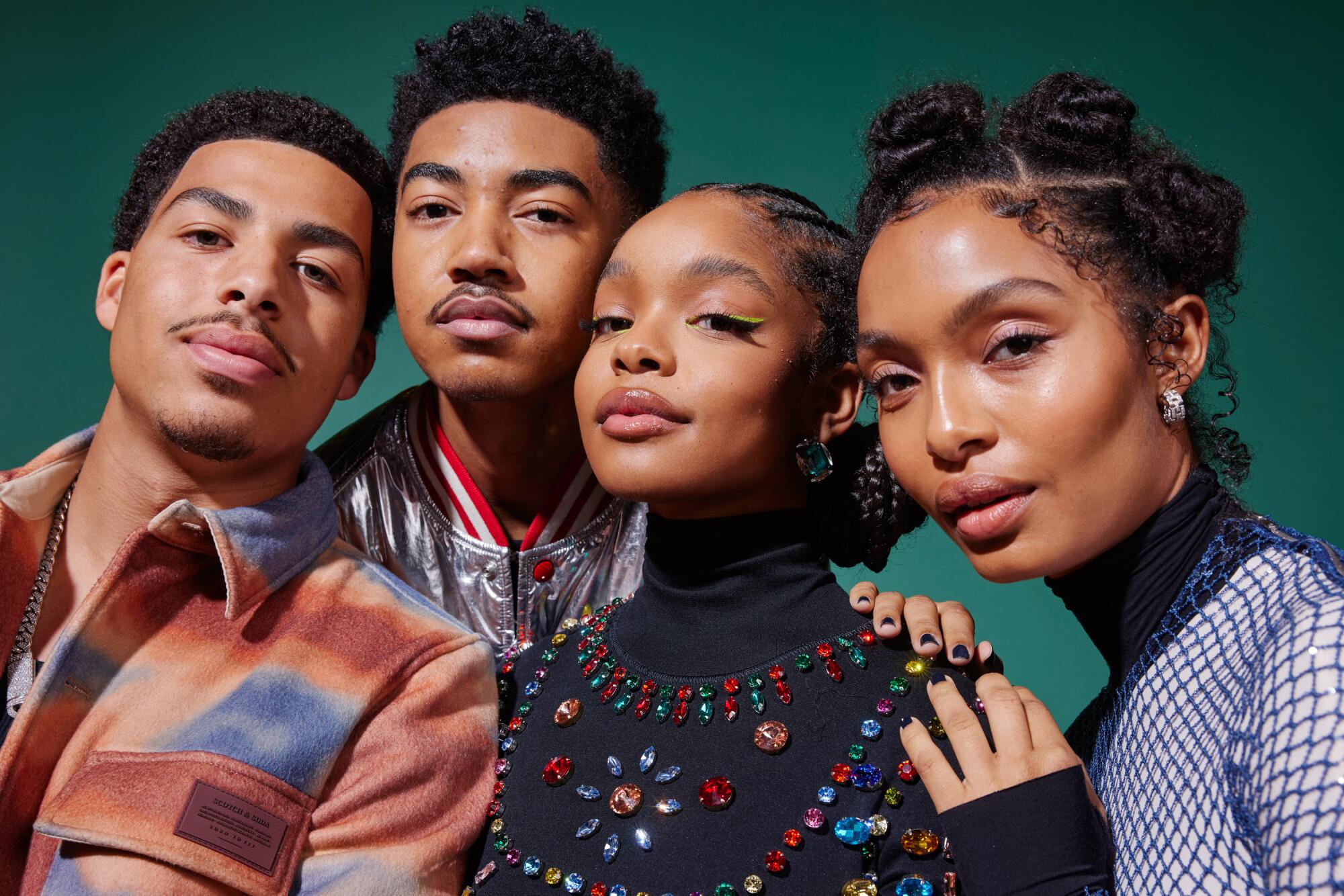
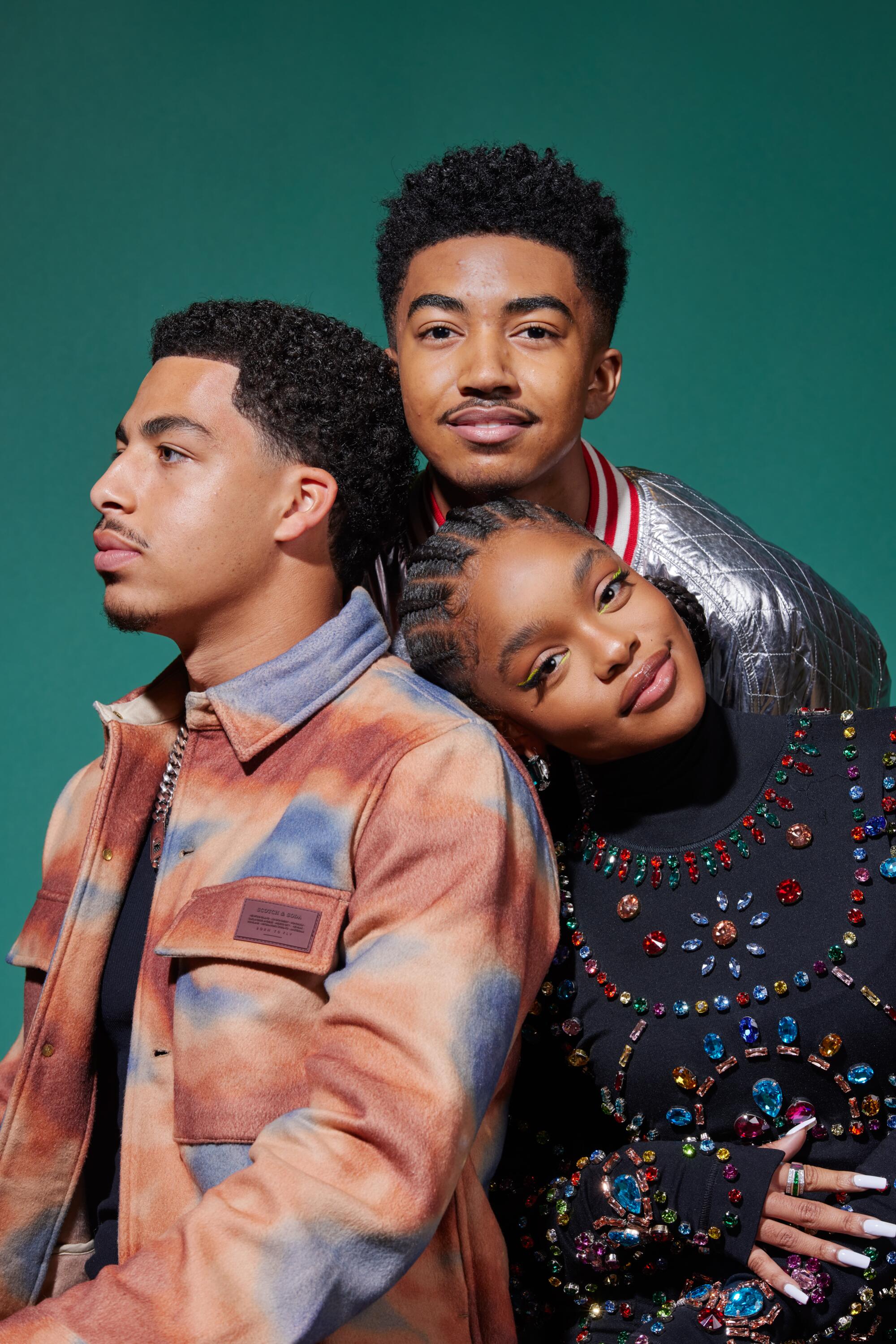
Ross, in a separate interview, said: “Doing the last few episodes, I shed so many tears; it was really exhausting. I feel such joy and pride. It leaves me with a full heart.”
Added Barris: “It’s sweet and sour shrimp. This show changed all of our lives and impacted things in a way we never could have anticipated. It’s been an amazing ride, but every book comes to an end — even the greatest books in the world. I’m sad to see it go but happy to have been a part of it.”
Before “black-ish,” most major network sitcoms centered on Black households, such as “The Fresh Prince of Bel-Air,” “The Hughleys,” “The Bernie Mac Show” and “My Wife and Kids,” were vehicles for their stars, who were usually stand-up comics. These shows often shied from dealing with serious issues facing Black people in the tradition of “The Cosby Show,” which featured an upper-middle-class Black family but rarely showed them outside their fashionable brownstone. “Black-ish” took these series as important influences but upped the ante on topicality.
“Kenya and I looked at the landscape of television when we were developing the show,” Anderson said, “and there was nothing that was representing us. ‘My Wife and Kids’ and ‘Bernie Mac’ were off the air, and we were nostalgic thinking about ‘Cosby,’ ‘Good Times,’ ‘The Jeffersons.’ We wanted to do our version of all of those shows.”
The series confronted hot-button topics head-on with stories centered on racial and cultural divides, including the use of the N-word, the election and presidency of Donald Trump and police brutality against Black people. Family love was a constant emphasis.
“We created a narrative of what Black culture was that wasn’t being seen,” Barris said. “I absolutely think it changed society. There weren’t a lot of shows talking about the things we were talking about. Juneteenth — we didn’t make it happen, but we talked about it in a way that brought it attention. The pressure of what it was to be a Black president. What it’s like to be a ‘Karen.’”
The complete guide to home viewing
Get Screen Gab for everything about the TV shows and streaming movies everyone’s talking about.
You may occasionally receive promotional content from the Los Angeles Times.
“This show absolutely transformed the landscape of television,” Ross said. “We showed a Black family as an American family that was universally identifiable for everybody. We were willing to break barriers. It was a generational comedy that was character-driven but also allowed to look at serious issues through the lens of comedy.”
Barris said he knew that the show was accomplishing his vision in the first season with the episode titled “The Nod,” which referenced the universally understood gestures between Black men.
“That was when we started finding our legs with that episode,” Barris said. “It defined what the DNA of the show was about. We were showing [life] behind the curtain, those nuances that us as African Americans use, just like other ethnic or [marginalized] groups have their nuances. It was the lasagna layer of what America is.”
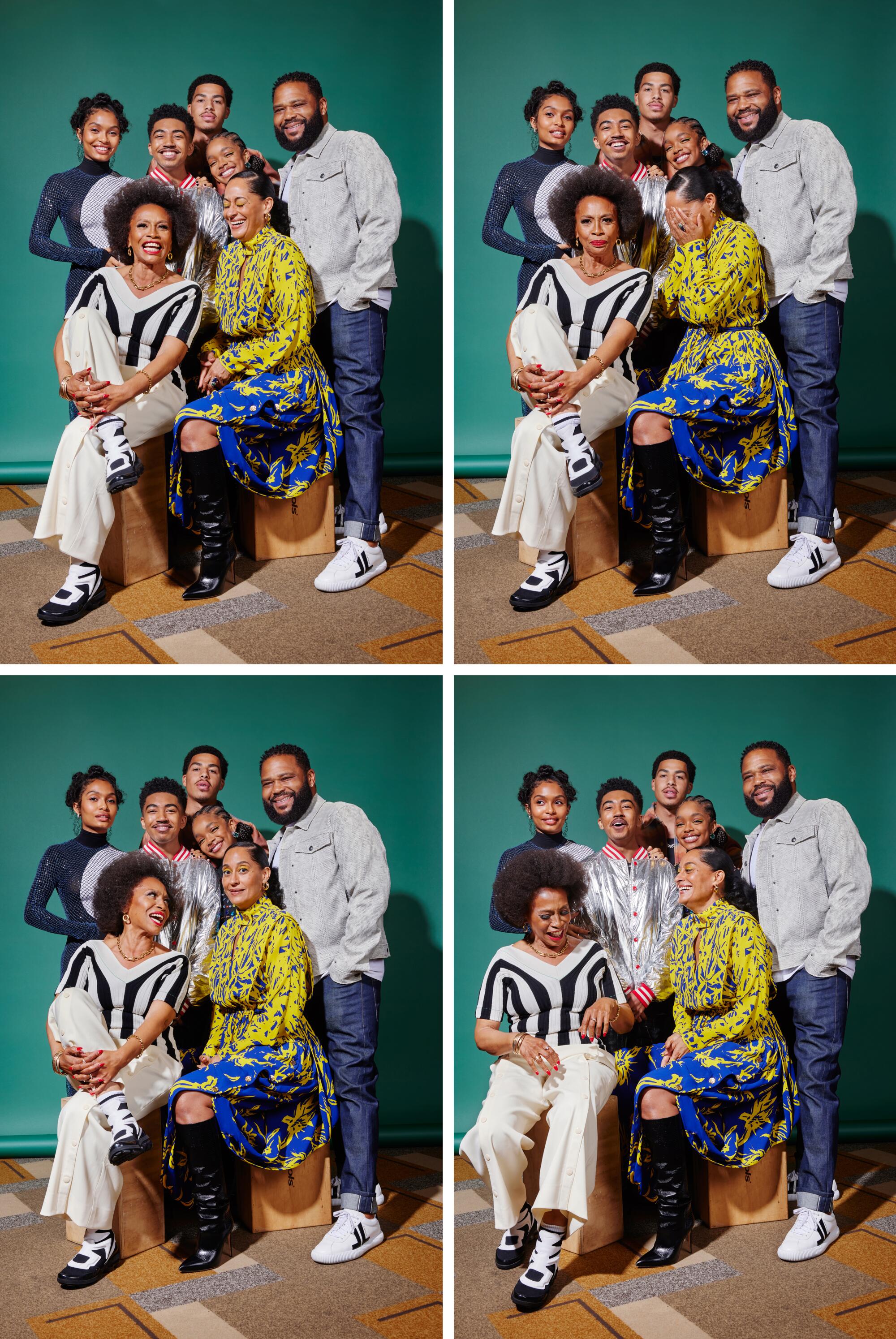
The series started out on a high note — it was the first major network comedy in almost a decade to revolve solely around a Black family. ABC gave the series a high-profile launch, positioning it after the Emmy-winning “Modern Family.”
During its run, “black-ish” has received four Emmy nominations for comedy series. Anderson has been nominated seven times for comedy actor and Ross five times for comedy actress.
But it was not always a smooth journey. Barris was particularly anxious about “Hope,” a Season 2 episode that dealt with police brutality against Black people, knowing he was stepping into risky territory: “I’m very nervous about that episode — the most nervous I’ve ever been,” he told The Times in 2016. “I worry about the comedy. I had to do a balancing act to show that we are not trivializing the issue, but we also didn’t want to politicize the show.”
In a shelved episode just released on Hulu, ‘black-ish’ offers a reminder that the politics of its greatest episodes are never less than relevant.
An episode titled “Please, Baby, Please” — which took aim at Trump and referenced the deadly 2017 Unite the Right rally and NFL players kneeling during the national anthem to protest police violence — made network executives so uncomfortable that they declined to air it. The decision led to Barris leaving ABC for a lucrative deal at Netflix. (Barris has since left the Netflix deal, and “Please, Baby, Please” was made available on Hulu after the murder of George Floyd in 2020.)
Looking back on those tough moments, Barris said, “Even those times when we ran into trouble were important to the show. If we weren’t getting that kind of reaction, then we weren’t making the noise we needed to make. It was important for those instances to happen to know we were on the right path. You need to shake things up a bit. It’s a life lesson and a hero’s journey — you go off and then come back to the place that raised you.”
Although “black-ish” is ending, its spinoff “grown-ish,” which follows the Johnsons’ eldest daughter, Zoey (Yara Shahidi), as she copes with college life, completed its fourth season on Freeform last month. The next season will see Zoey’s younger brother Junior (Marcus Scribner) joining the cast. (Another spinoff, “mixed-ish,” about the adolescent years of Bo Johnson, was canceled last year after a two-season run on ABC.)
Since concluding filming on “black-ish,” Anderson, Ross and Barris are already deep in other endeavors. Ross is focused on producing and is continuing with her hair care line, Pattern. Barris is a head partner in the newly launched BET Studios. Anderson, who had starred in NBC’s “Law & Order,” has returned to the recently launched reboot.
The actor, who has appeared in numerous TV shows and movies, said he would put “black-ish” at the top of the list of his wide-ranging career.
“We succeeded and exceeded all our expectations and wants,” Anderson said. “We pushed the culture forward. And we didn’t shy away from anything.”
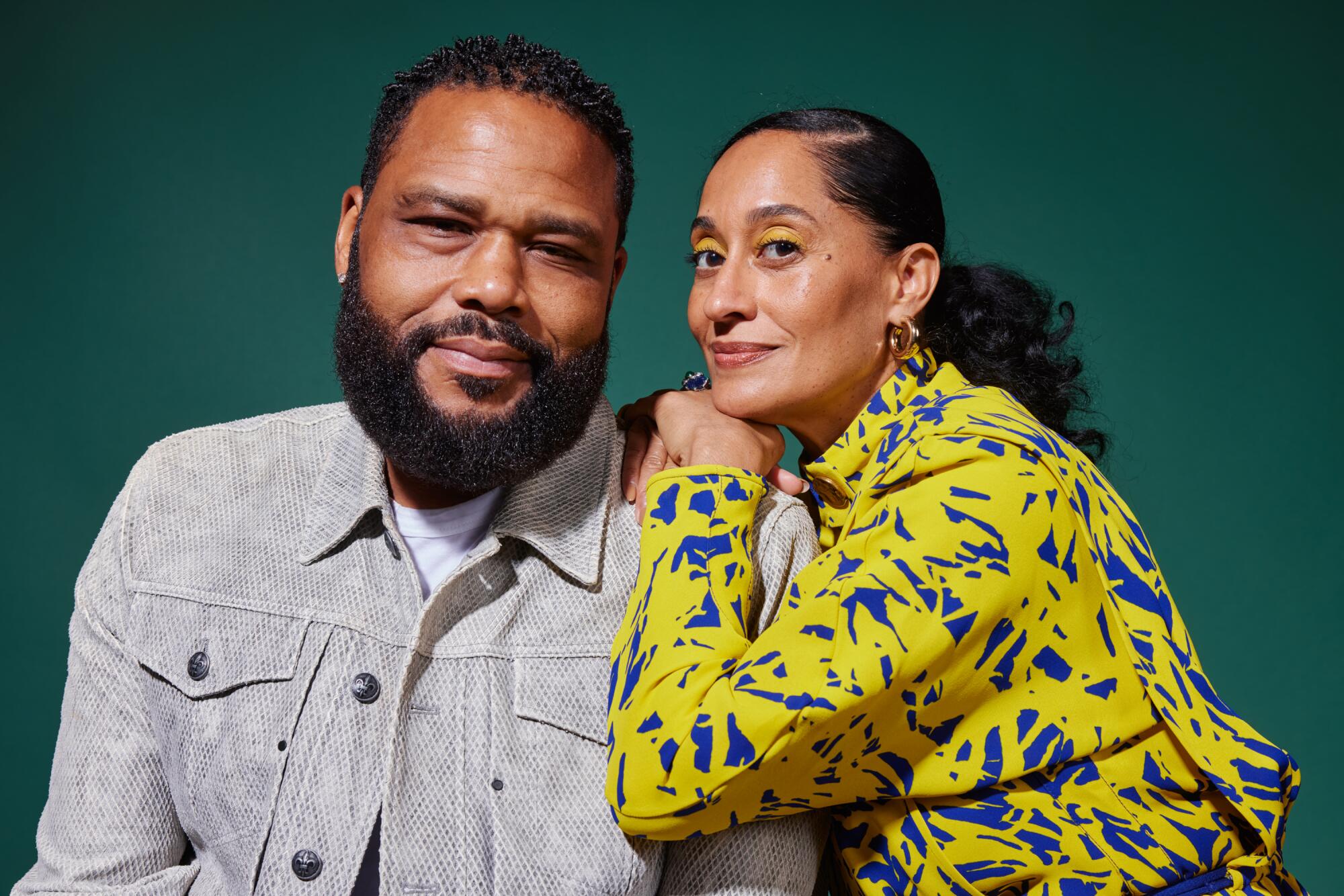
More to Read
The complete guide to home viewing
Get Screen Gab for everything about the TV shows and streaming movies everyone’s talking about.
You may occasionally receive promotional content from the Los Angeles Times.
